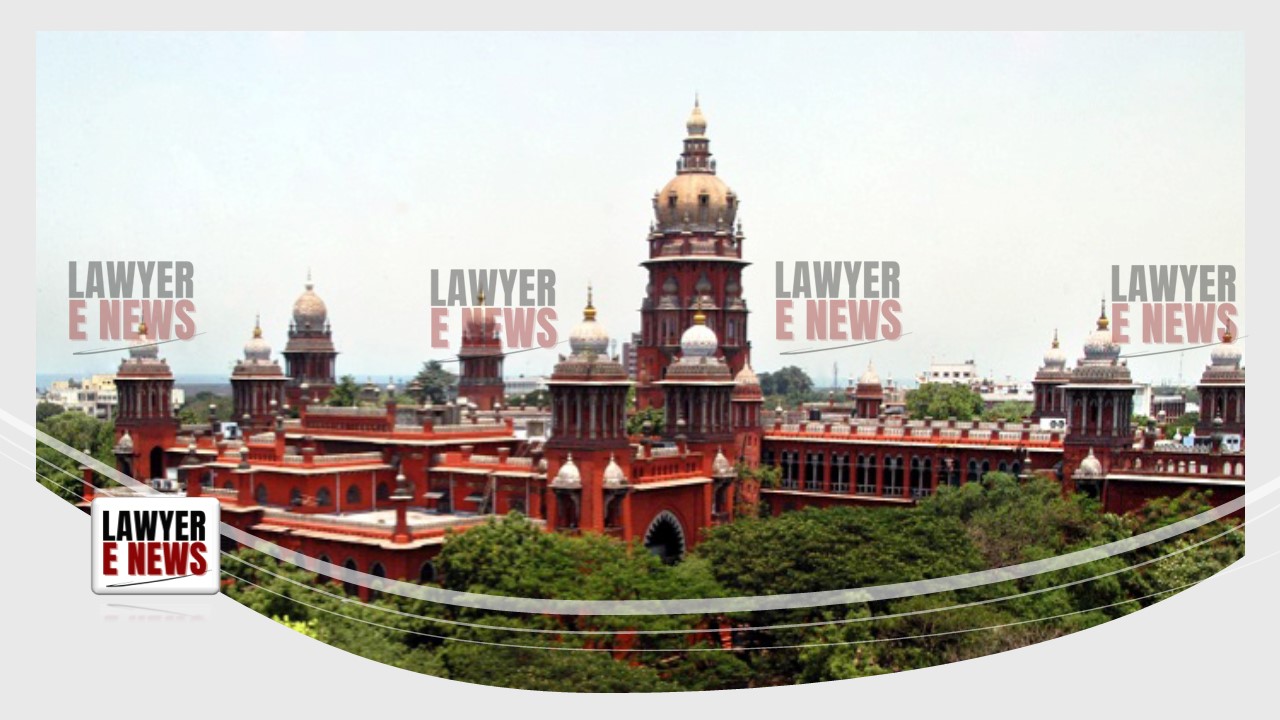-
by sayum
14 February 2026 2:22 PM



High Court Affirms Plaintiff’s Right to Parents’ Property While Clarifying Coparcenary Rights Post 2005 Amendment
Madras, In a significant judgment, the High Court of Judicature at Madras upheld the partial claim of a plaintiff seeking partition of ancestral properties, addressing crucial issues of legitimacy under Hindu law and the rights to ancestral property. The bench, presided over by The Honourable Ms. Justice P.T. ASHA, delivered the verdict on appeals arising from a judgment in a partition suit. The court ruled on the applicability of Section 16 of the Hindu Marriage Act (HMA), 1955, and the amended provisions of the Hindu Succession Act (HAS), 1956.
The case, initiated as O.S.No.56 of 2004, revolves around the plaintiff’s claim for a 6/10th share in the ancestral properties left by his deceased father, Kandasamy Moopanar. The plaintiff, born from Kandasamy’s marriage with Fathimabibi, contested that the properties were ancestral. Kandasamy Moopanar had another relationship with Sankariammal, producing defendants 4 and 5. The Trial Court initially awarded a 1/5th share to the plaintiff, prompting appeals from defendants 1, 3 to 5, and a cross-objection from the plaintiff.
The High Court extensively deliberated on the legitimacy conferred under Section 16 of the HMA. Despite the marriage between Kandasamy and Fathimabibi being void under Section 11 of the HMA, the court noted the legitimacy conferred upon the plaintiff through the amendment to Section 16 in 1976.
“Once children born from a void marriage are declared legitimate under Sections 16(1) and 16(2), they cannot be discriminated against for inheritance of their parents’ property, both self-acquired and ancestral,” observed Justice P.T. ASHA.
The court further examined the implications of Section 6 of the HAS, particularly post the 2005 amendment which accorded equal rights to daughters in ancestral property. It emphasized that daughters are coparceners by birth and their rights are not contingent upon the father being alive as of the amendment date.
“The conferral of coparcenary rights is by birth. It is not necessary that the father should be alive on the date of the amendment. Daughters, like sons, acquire these rights from birth,” stated the judgment.
Addressing the devolution of property, the court reiterated that under Section 6(3) of the HAS, the interest of a deceased Hindu in joint family property devolves by testamentary or intestate succession. This brings an end to the coparcenary system upon the death of a Hindu male or female post the amendment date.
“Section 6(3) of the HAS marks the end of the coparcenary system upon the death of a Hindu post 09.09.2005, mandating devolution by succession,” the judgment clarified.
The High Court’s ruling partially allowed the plaintiff’s appeal, granting him a 1/20th share in the suit properties. This decision underscores the judiciary’s commitment to upholding legitimacy under amended Hindu laws and ensuring gender equality in property rights.
Date of Decision: July 01, 2024
